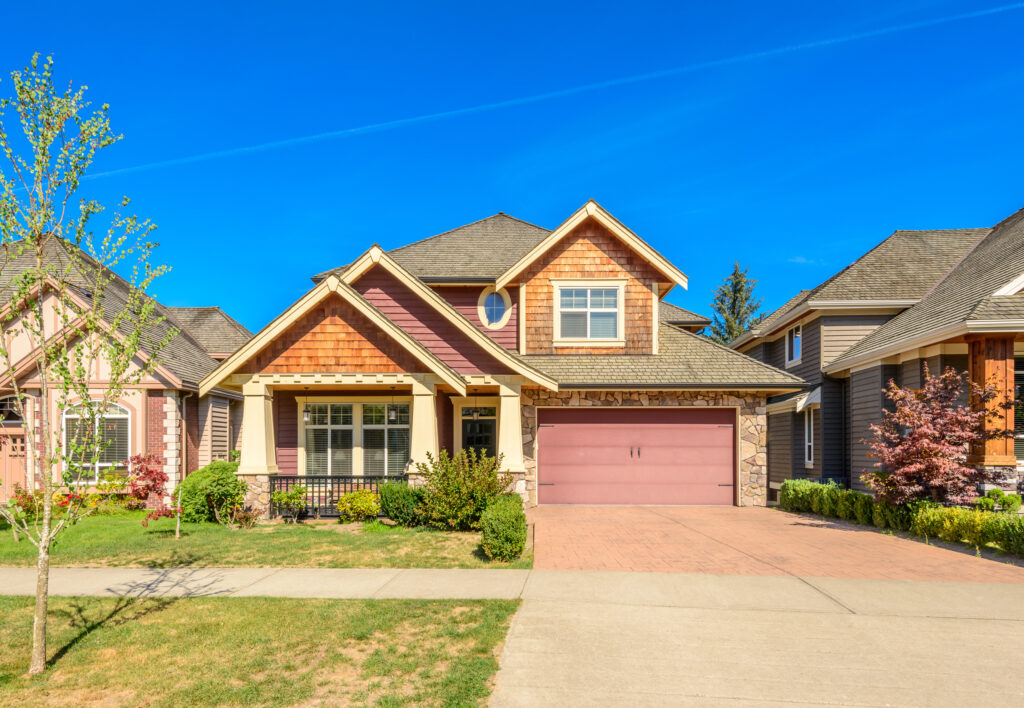Georgia Adult Care Homes: How to pay for, Licensing, Term Definitions and Questions to ask…
Georgia is home to some of the nation’s most beautiful countryside, mountains and sandy beaches. The cities are first-rate and modern, Athens and Atlanta, full of fine dining establishments. The state experiences all four seasons, a desired year-round climate and destination. As residents of the state age they may require care. Most people think of nursing homes when a loved one may require a higher level of care. However, a nursing home is far from your only option. An adult care home (board and care home, residential care home, or personal care home) may be ideal for a senior who can no longer manage their health and safety in their own home. Board and care homes are an excellent housing option for aging adults because they offer private residencies in a home-like environment. Some states may use the term Adult Foster Home or Board & Care Home. These homes are not nursing homes.

Board and care homes
A board and care home (personal care home) are private residences that provides a home-like setting, and typically care for 5-10 residents, depending on the state licensing requirements. The Georgia adult care home, care home, board and care home provider will typically provide meals, housekeeping, and limited activities.
Unlike a nursing home, residents may require very light assistance or may be dependent with several care needs; it is best to ask individual locations for their specific policies and licenses.

Caregivers in a board and care home may perform several functions: personal hygiene and mobility and eating and dressing and toileting and behavior management. There are other excellent options aside from a nursing home.
Georgia adult care home and other terms
It is good to know the other terms/names you may hear:
- Nursing Home (although this is an outdated and not an accurate term for this level of care)
- Board and care home
- Care home
- Adult family home
- Residential care home
- Adult foster home
Georgia adult care home laws and regulations
Licensing
Personal care homes are licensed and monitored by The Healthcare Facility Regulations. The HFR monitors and inspects these homes, as well as assisted living facilities, hospitals, and nursing homes. The HFR is a state survey agency. They monitor all facilities participating in Medicaid and Medicare programs.
Staffing
All staff require appropriate licensing, degree and training applicable to the care they can service and provide. All staff in any home or facility is required to undergo a background check.
Grievances
Complaints against facilities, management or staff may be filed with the Division of Healthcare Facility Regulations.
What care and support do Personal Care Homes provide?
Board and care homes (residential care homes, adult care homes, personal care homes) look very similar to a single family home in any neighborhood you might find across the United States. And these residences are licensed to house a smaller number of adults as opposed to larger assisted living communities. So they make ideal homes for loved ones who require individualized care while allowing residents the preferences and choices to honor their independence. Similar to a nursing home, residents receive 24-hour care in a single-family environment. Each home has an operator who may employ additional caregivers to support with the care of residents.

Caregivers may assist with activities of daily living (ADLs) and some additional care needs
- Personal care
- Housekeeping
- Activities
- Group meals
- Mobility
- Behavior management
- Eating
- Dressing
- Toileting
- Personal hygiene
- Cognitive support and redirection
Is a personal care home right for your loved one?
Your loved one may require minimum assistance, in which case a personal care home may be ideal. If they are more dependent on care and services, a nursing home or different alternative may be a better fit. The comfort and peace of mind of your loved one is the most important thing, so ask each location you look at for their specific licenses and policies.
How much does a personal care home cost in Georgia?
Georgia is an excellent place for seniors to receive care or find housing solutions because of the relatively affordable costs. As with all states, the cost will vary depending on your location. Larger cities are frequently more expensive as well as smaller towns which may be home to wealthier populations.
In Georgia, the average cost of an adult care home is $3,000 per month. Generally, personal care homes are half the cost of a nursing home and can be less expensive than assisted living. But they will not have the same amenities and variety of activities. Georgia has excellent resources for residents who are looking for senior care.
- Costs fluctuate depending on your geographical location.
- Each state has varying costs for adult care homes.
- Expect to pay between $1,700 per month to $4,000 per month, on average.
- Costs are affected by the care requirements of your loved one.
Typically, the cost for senior living and care is less expensive in the southern regions of the country as well as some of the mid-western states. If you are looking for care in the northeast or on the west coast, expect to potentially pay much more.
- Georgia average cost of a personal care home per month: $3,000 (compared with highest rated homes in different locations within the state:
- Riverdale: $3,600 per month
- Atlanta: $4,500
- Monroe: $3,475
- Snellville: $3,000
How to pay for an adult care home

You want to consider your payment options for assisted living, memory care, and care homes. For these services, Medicare is NOT an option for payment.
The most common payment for these services would be out of pocket Private Pay and assessing a combination of retirement funds, personal savings, and pension payments.
Medicaid can also be an option, be sure to see if you or a loved one qualifies.
Long-Term Care insurance is also a possible option in cases of chronic conditions, be sure to see if you or a loved one qualifies.
For our Veterans and spouses of veterans, be sure to assess Veteran Aid and your eligibility for these benefits.
Medicare – NO:
- Medicare does NOT pay for Assisted Living.
- People 65 years and older and individuals with end stage renal disease are eligible for Medicare benefits, no matter their income.
- Coverage is meant for people in need of short-term care.
Private pay – YES:
- Many families pay for assisted living with private funds.
- Private pay can be a combination of retirement funds, personal savings, and pension payments.
- Family members may contribute funds to pay for assisted living or other senior housing and care.
Medicaid – MAYBE:
- Medicaid provides health coverage to millions of Americans. Eligible participants include: low-income adults, elderly adults and people with disabilities.
- Medicaid is administered by state, according to federal requirements. The program is funded jointly by each state and the federal government.
- Every state has their own individual Medicaid assistance program.
- National guidelines are in place do decipher how states must spend Medicaid money, but with allowances toward the guidelines.
- The state determines what levels of care will be covered by Medicaid, who is eligible, and how much the state will reimburse the care community.
- If you are unsure whether you qualify for Medicaid, you should apply. You may be eligible depending on your household income, family size, age, disability and other factors.
Long-term Care Insurance – MAYBE:
Long term care insurance is a great way to pay for assisted living, and planning ahead is important when considering how to pay for senior housing and care. Nearly 75% of people over the age of 65 will require long-term care and services at some point. Buying into long-term care insurance when a person is in their 50s and 60s is the most common time to do so.
- Long-term care insurance helps cover the costs of chronic medical conditions.
- Individuals and couples with the ability to pay into long-term care insurance have the advantage of a head start in allocating funds for senior care.
Veteran Aid and Assistance – MAYBE:
This benefit is available to some military veterans and surviving spouses who live in an assisted living community and those who have in-home care.
- There are specific guidelines, but a veteran may qualify for as much as $2,050 each month.
- A veteran with a sick spouse may be eligible for $1,600 per month.
- If a veteran has passed, their surviving spouse can qualify for $1,300 per month.

Questions to Ask
Finding a senior living community can be overwhelming. Here are some tips on things to be observant of:
- Make sure the facility is clean and well maintained. You can tell a lot about the operation by noting what is clean and maintained. Are doorknobs loose or damaged? Do you see any frayed carpet or trip hazards?
- Visit during lunch hour to observe what the residents are eating. Ask questions about the nutrition program. Is there diversity in meals, healthy fruits and vegetables served at all meals, drink options?
- Speak to residents and/or family members to learn their perspective.
- Ask about staff and resident engagement. Get a feel for how staff interact with residents.
- Ask about the life enrichment programs. Activities are crucial when it comes to quality of life and play a key role in care for older adults.
- And finally (along with a plethora of more things to consider), get to know the leadership in the building. If you feel good around the Executive Director, Head Nurse, Lead Activities Director and even the Chef or Janitor, it is a good sign you can trust them with the care of your loved one.
Resources and Links – Georgia
Georgia DHS Division of Aging Services – The Georgia Department of Human Services’ (DHS) Division of Aging Services (DAS) supports the larger goals of DHS by assisting older individuals, at-risk adults, persons with disabilities, their families, and caregivers to achieve safe, healthy, independent, and self-reliant lives.
Georgia Adult Protective Services – APS provides protection from exploitation abuse or neglect for individuals, 18 years and older with a disability and 65 and older regardless of a disability, living in the community who, because of physical or mental limitations, are unable to act in their best interest.
Georgia SHIP – Help Medicare and Medicaid beneficiaries sort through the complexities of Medicare and related-health insurance concerns.
Georgia Senior Legal Aid – Statewide legal services program for seniors sixty and over. Attorneys provide advice, brief services and referrals.
Capitol Ombudsman Program – A principal function of the Ombudsman Program is to investigate and work to resolve complaints made by or on behalf of long-term care residents.
Eldercare Locator This is a great resource to search for specific care in specific counties and cities. This database is a nationwide resource that connects older Americans and their caregivers with trustworthy local support resources. Connect with services such as meals, home care or transportation, or a caregiver education or respite from caregiving responsibilities. The Eldercare Locator is a public service of the Administration on Aging (AoA), an agency of the U.S. Administration for Community Living.
Medicare provides a search feature to find & compare providers near you, most senior housing and care providers are included on CareAvailability.com. Find & compare plans in your area. Determine if you qualify for premium savings
Medicaid offers information on how to apply for Medicaid, eligibility criteria, links to local state offices, and additional resources
The Alzheimer’s Association is the leading voluntary health organization in Alzheimer’s care, support, and research. Whether you are living with Alzheimer’s or caring for someone with the disease, information and resources are available.
Search other states for Adult Care Homes
Not finding what you’re looking for? Take a look below.
